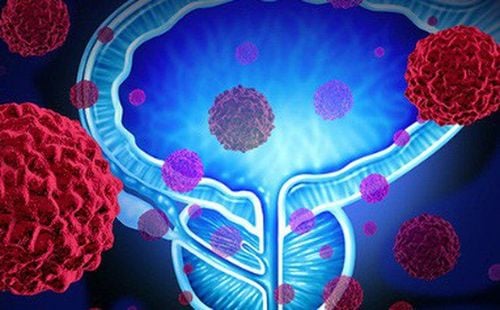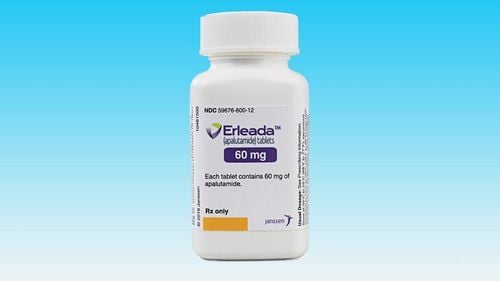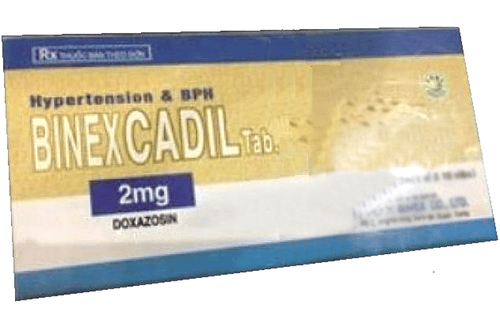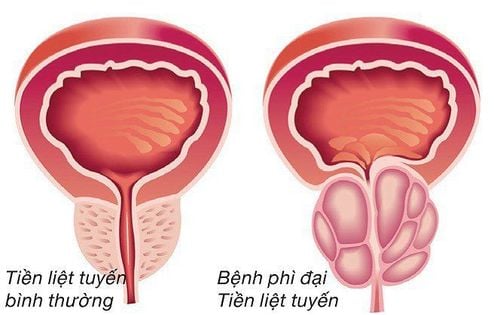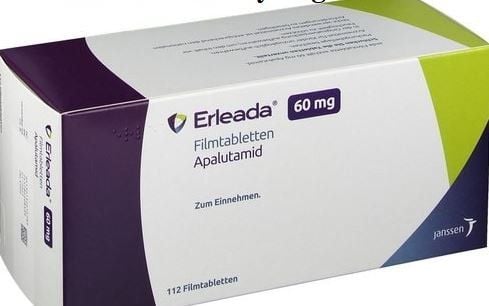This is an automatically translated article.
Posted by Master, Doctor Tran Thanh Hung - Urologist - General Surgery Department - Vinmec Ha Long International Hospital
Prostate cancer is a dangerous disease. However, if the disease is detected early, the prognosis for treatment and recovery is very high. So how will patients with signs of prostate cancer be tested and diagnosed?
1. What to do to detect prostate cancer early
Early detection of prostate cancer is of great significance for applying appropriate treatment, increasing the cure rate and reducing the mortality rate. However, early signs of prostate cancer are not obvious. For early diagnosis, patients should pay attention to:
Annual prostate cancer screening in men over 50 years old. If your family has a father or brother with prostate cancer, you should have regular prostate exams from the age of 40. Blood tests: Your doctor will give you a PSA (prostate specific antigen) test. including tPSA and fPSA, the higher the PSA result, the greater the risk of prostate cancer. Rectal examination: can detect signs of prostate cancer. Transrectal ultrasound-guided prostate biopsy: The doctor uses a needle to take a small sample of tissue from a suspicious area and multiple tissue samples scattered throughout areas of the prostate. Most will take 12 or more samples for high accuracy. .
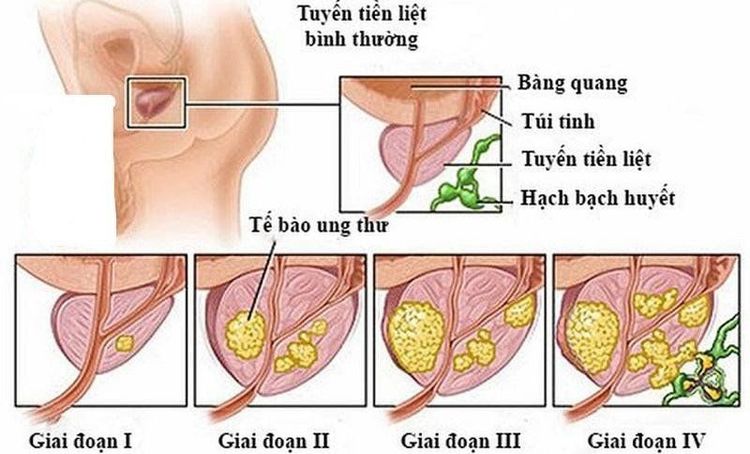
2. The role of PSA and confounding factors affecting PSA test results
PSA (Prostate-Specifc Antigen) is a prostate-specific antigen widely used in clinical urology. PSA is found mainly in semen and to a small extent in blood, normally in very low concentrations in plasma. According to some Vietnamese studies, the normal value in plasma is < 4 ng/ml. In plasma PSA exists in two forms: free (fPSA 30%) and conjugated (tPSA 70%). PSA is secreted mainly by prostatic ductal epithelial cells. Although it is a prostate-specific antigen (TTL), PSA is not a prostate-specific antigen.
SEE ALSO: How much PSA indicates prostate cancer risk?
The fPSA level test and the evaluation of the fPSA/tPSA ratio are indicated for the diagnosis of prostate cancer in cases where the patient's blood tPSA level is elevated, within the suspected region of 4 to 10 ng/ mL.
Table 1. : Association between total PSA concentration and prostate cancer rate
| Mức độ PSA toàn phần (ng/mL) | Tỷ lệ ung thư tuyến tiền liệt (%) |
| 0 – 2,4 | Hiếm gặp |
| 2,5 – 4,0 | 12 - 23 |
| 4,1 – 10,0 | 25 |
| > 10,0 | > 50 |
Confounding factors that increase the concentration of PSA in blood and semen include:
Lower urinary tract infections, especially prostatitis Procedures that "touch" the prostate such as: placing a catheter Transurethral cystoscopy, rectal examination of the prostate, prostate biopsy Post-ejaculation in men ≥ 50 years of age increases plasma PSA and after 48 hours PSA returns to baseline.
3. What is the accurate diagnosis of prostate cancer based on?
Definitive diagnosis of prostate cancer is based on the results of histopathology (histopathology) samples from biopsy or surgery find malignant cells For more aggressive measures in cancer treatment prostate cancer and prognosis, readers can continue to follow the next column.
Cancer inherently does not spare anyone, it is estimated that every year in the world, a very large proportion of people die from cancer. In fact, if cancer can be detected at an early stage, the prognosis for treatment is very high, even if it is completely cured and not recurred. Therefore, screening for cancer is essential, especially for high-risk patients.
Currently, Vinmec International General Hospital has been implementing a package of screening and screening for prostate cancer. At Vinmec, there are full facilities for modern prostate cancer diagnosis and screening such as: PET/CT, SPECT/CT, MRI..., blood marrow test, histopathology, immunohistochemistry test translation, genetic testing, molecular biology tests, as well as a full range of targeted drugs, the most advanced immunotherapy drugs in cancer treatment. Multimodal cancer treatment from surgery, radiation therapy, chemotherapy, hematopoietic stem cell transplantation, targeted therapy, immunotherapy in cancer treatment, new treatments such as autoimmunotherapy body, thermotherapy...

After having an accurate diagnosis of the disease, the stage, the patient will be consulted to choose the most appropriate and effective treatment methods. The treatment process is always closely coordinated with many specialties: Diagnostic Imaging, Biochemistry, Immunology, Cardiology, Stem Cell and Gene Technology; Department of Obstetrics and Gynecology, Department of Endocrinology, Department of Rehabilitation, Department of Psychology, Department of Nutrition... to bring the highest efficiency and comfort to the patient. After undergoing the treatment phase, the patient will also be monitored and re-examined to determine whether the cancer treatment is effective or not.
Customers interested in prostate cancer examination, screening and treatment services can contact Vinmec International General Hospital for service.
Please dial HOTLINE for more information or register for an appointment HERE. Download MyVinmec app to make appointments faster and to manage your bookings easily.





